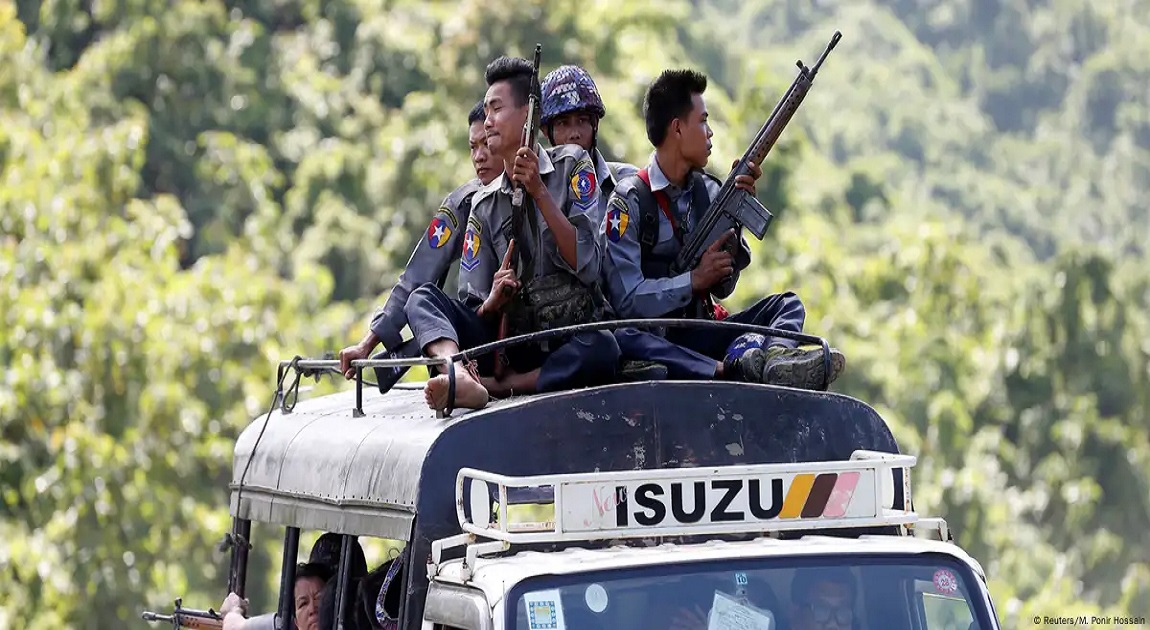Armed Rohingya groups are reportedly recruiting fighters from refugee camps in Cox’s Bazar to wage war against the Arakan Army in Myanmar.
Such a development could severely damage intercommunal relations within Myanmar and further diminish the prospects of Rohingya repatriation.
A recent report highlighted that Rohingya armed factions have become increasingly active in response to the Arakan Army’s continued advances against Myanmar’s military in Rakhine State.
These groups, which have long been involved in violent activities, reportedly agreed last November to jointly confront the Arakan Army.
Although overall violence has somewhat subsided, recruitment efforts have intensified, particularly through religious appeals, as the Arakan Army enjoys strong backing from Rakhine’s Buddhist population.
The report noted that nearly the entire Myanmar-Bangladesh border is now under the control of the Arakan Army. In this context, Bangladesh had initiated informal engagements with the group.
However, a new armed campaign by the Rohingya could jeopardize these dialogues and introduce additional uncertainty regarding the repatriation of refugees.
Earlier in 2024, Myanmar’s military had attempted to mobilize Rohingya fighters to counter the Arakan Army.
Despite previously opposing the military, Rohingya groups adopted a different stance this time to resist the Arakan Army’s advances. However, this strategy yielded limited success for the military.
Bangladesh’s security agencies have reportedly maintained ongoing communication with both the Rohingya and the Arakan Army.
Bangladesh is said to support efforts to reduce violence within refugee camps and to promote unity, while also considering applying pressure on the Arakan Army to facilitate refugee repatriation.
Notably, the areas from which Rohingyas were expelled in 2017 are now largely controlled by the Arakan Army.
The Arakan Army currently enjoys widespread support from the general population in Myanmar due to its opposition to the ruling junta.
If the Rohingyas confront the Arakan Army, it may further worsen attitudes towards Rohingya refugees within Myanmar.
According to the report, Bangladesh should consider deepening its engagement with the Arakan Army, enhancing trade and humanitarian efforts in Rakhine State, and working to curb the influence of armed groups within the refugee camps.
These measures could contribute to border stability and the development of a Rohingya civil society.
The report also recommended that the Arakan Army take meaningful steps to build trust with the Rohingya and demonstrate its capacity for inclusive governance.
As international support, particularly from the United States, is reportedly declining, the report emphasized the need for global donors to increase humanitarian assistance in the Rohingya camps in Bangladesh.











-20260226080139.webp)





-20260225072312.webp)













-20260219054530.webp)
-20260224075258.webp)





-20260221022827.webp)